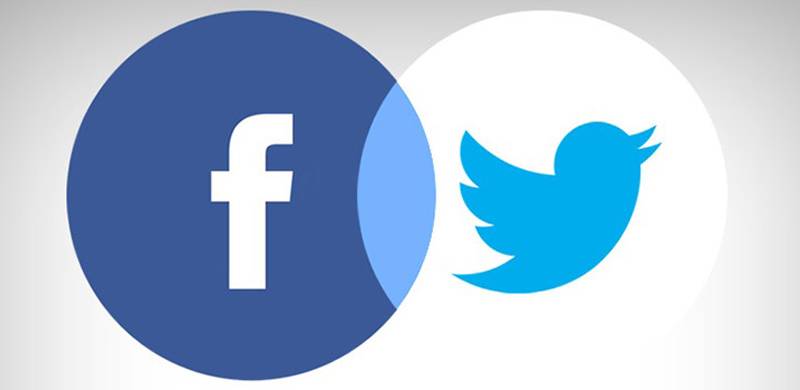
Back in 1983, when I was a teenager, a British band called the ‘Fun Boy Three’ had a hit single in the UK. I got to know about it when I saw a video of that song on a pirated recording of UK’s famous show, Top of the Pops.
The song was called the ‘Lunatics Have Taken over the Asylum.’
I have always understood the social media as a sanctuary for millions of people who once thought they were not being heard or seen. Owners of Twitter and Facebook insisted that their sites were an expression of a new kind of a dynamic, direct democracy.
They also claimed that the social media would nurture the many sacred aspects of democracy. Such as freedom of speech and expression; open and free debate; etc. But I am sure many of you would now agree that if social media was a friendly sanctuary for repressed democrats, it has now been taken over by the lunatics.
The internet largely is not all that bad. I mean, indeed, many of us have forgotten how to write with a pen; or read from a book; and porn is just too easily available. It’s become boring. And how many among the millennials remember what a typewriter was?
All this cannot be undone. And it shouldn’t. We must move forward. Nevertheless, doesn’t democracy give us the right to undo certain laws and amendments in the constitution that have become a problem? Then what is stopping us from undoing certain aspects of the internet that have become problematic?
It’s easier said than done. Take for instance the 2nd amendment in the US Constitution. The right to bear arms. And incidentally, the 2nd Amendment in Pakistan’s constitution that – in the name of faith – relegated a community of people to become an insignificant minority.
Or some controversial laws that were enacted through ordinances in the 1980s but have now clearly become weapons in the hands of those who wield them with utmost disregard for someone’s reputation or even life.
To many folks in the US one is not a true, patriotic American if he or she wants to undo or even reform the 2nd Amendment. Even if the right to bear arms has often turned into the desire to mow down students at a high school.

In Pakistan, many would consider one to be a bad Muslim if he or she demands that certain controversial laws enacted in the name of religion should be reformed. Even if a jealous husband or a crooked land-grabber or a cynical, illiterate preacher conveniently decides to get rid of the competition by accusing him or her of committing religious sacrilege.
Unlike dictatorship and authoritarianism, democracy is a more complex animal.
This complexity often throws up various contradictions. And I believe this aspect of democracy is best demonstrated on the social media.
On Twitter, last year, a social media personality in Pakistan tweeted how much he hates democracy; and how democracy is such a failure.
He tweeted that it was a western conspiracy which should be overthrown by a benevolent dictatorship. When he was confronted, he instantly reminded those confronting him that it was his democratic right to say what he just said. He urged them to respect his freedom of speech. Such are the ironies facing democracy these days – especially on social media.
A few years ago, a well-known Pakistani personality – a millennial – posted rants about how the west was encouraging the growth of homosexuality in Pakistan.
This gentleman has similar views about democracy as well. So, a few Pakistanis were of the view that his rants in this context may instigate violence against some people. They told him that since Pakistan was a democracy, all types of men and women, as long as they were not violent, have the right to be whatever they want to be.
His reply to them: It is my democratic right to air my views about this issue any way I want to.
But Facebook thought otherwise. Due to the many complaints against his rant, Facebook suspended his account for promoting hate speech.
This gentleman created a new account. And then wrote an open letter to Mr Mark Zuckerberg, accusing him of not respecting his democratic rights and the right of free speech. And Voila! Mr Zuckerberg personally reinstated his account.
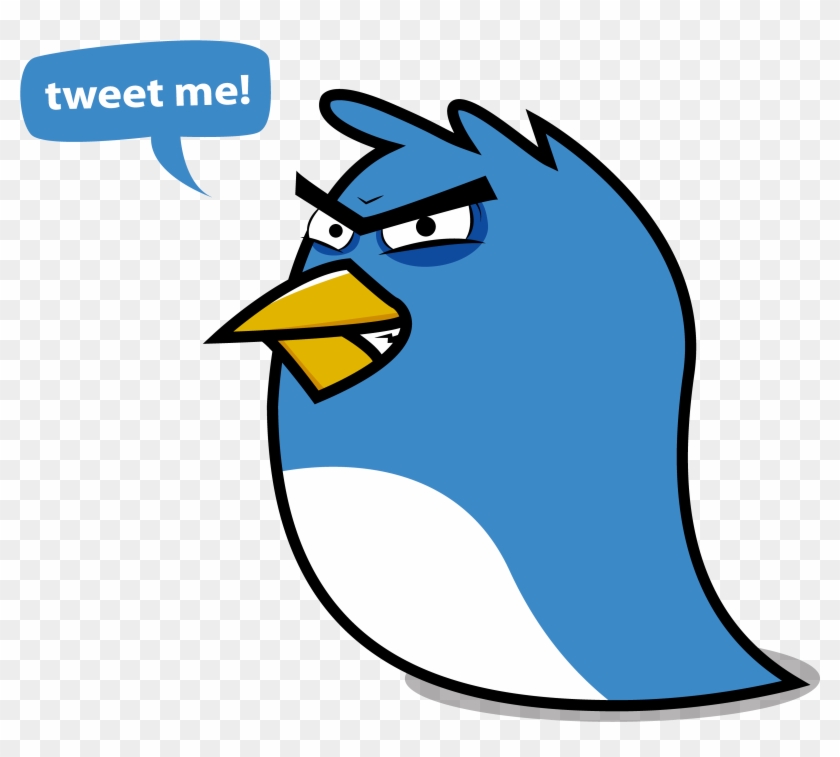
Now, how is one to describe such a scenario? Was it his democratic right to instigate violence against a community of people that he detested?
Were those – who got his account suspended – being irresponsible democrats?
Was Mr Zuckerberg defending freedom of speech when he reinstated the aggravated gentleman’s account?
In the age of social media, when we talk about democracy, we tend to understand it as something which encourages a free-for-all attitude.
That’s why I believe we have begun to confuse anarchy with democracy.
Freedom of speech is not about having the right to deliver hate speech!
Back in 2005 when a Danish newspaper published a series of cartoons lampooning a sacred personality of Islam, I wrote an article condemning the cartoons.
I faced a lot backlash for that article from readers in Europe after someone posted the article on the now forgotten and defunct social media site called Orkut.
The critics lamented, how can I – a liberal democrat – condemn the cartoons? They reminded me that what I was condemning was freedom of expression.
I refused to be drawn into the debate that the article generated on that Orkut page run by someone who continued calling me a ‘closet fundamentalist.’
Instead, I responded through another article.
I asked: If that which creates violent commotion in a large community of people is democracy or freedom of expression, then please explain and define the act of the rabid Taliban regime which blew up those magnificent Buddha statues in Afghanistan in 2001?
How was that not freedom of expression?
This article, however, was not posted by anyone in that Orkut group.

Democracy is a responsibility. It comes with checks and balances.
That’s why we have constitutions. But as I mentioned earlier, some content in certain constitutions too have begun to enshrine and even encourage prejudice and violence? These need to be re-looked, just like the many accounts on social media peddling hate and violence. They need to be undone.
There is nothing undemocratic about doing such a thing.
Democracy should stop behaving like an apologist.
Because, for example, when we scan the social media landscape, those who detest democracy are the ones exploiting its many aspects the most: Freedom of speech, freedom of expression, etc.
Is it okay then that some of this free speech and expression ends up instigating violence against a community or an individual?
No.
Before I go on, I think it is important to give a brief background of the country I call home. Imagine, there was Google Images back in the 1960s and 1970s.
Had you typed Pakistan in the search bar, you would most likely see diverse images, both pleasant and unpleasant.
But if you type Pakistan in the search bar today, over 70 percent of the images are likely to be about terror attacks, rabid clerics, angry mobs, burqa-clad women, et al.
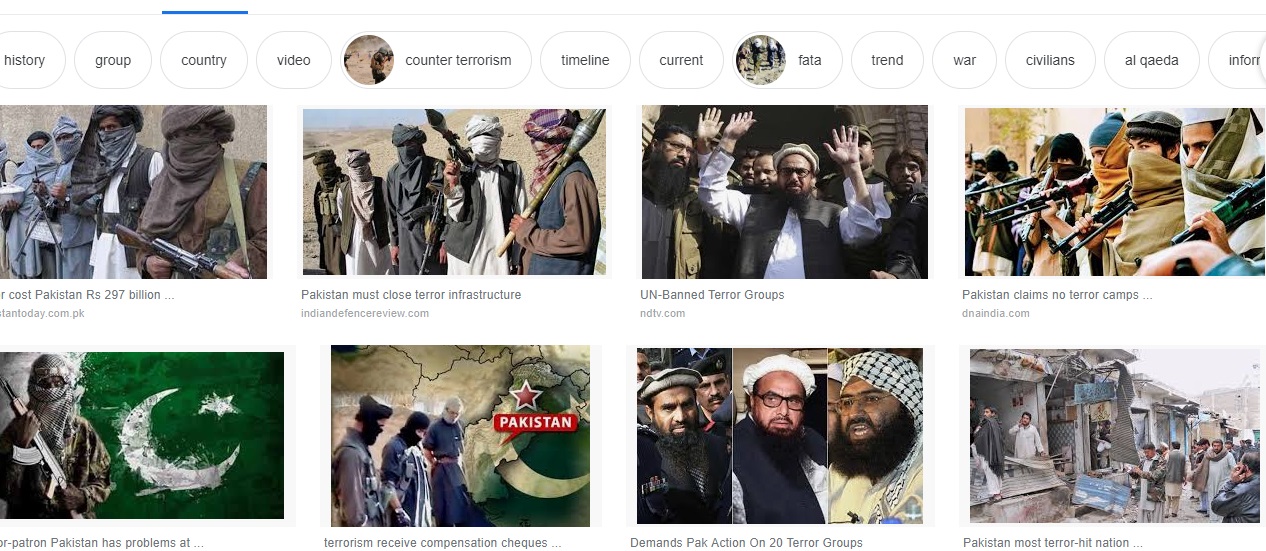
Is this some conspiracy by Google? Not quite.
The Pakistani middle-class, the class I come from, is a rapidly expanding segment of our population. In essence, it is not very different from the middle-classes in Europe or the United States.
This is not a conspiracy by Google. This is the bitter fruit of Pakistani politics as it has evolved and stands today.
Let me explain: ZA Bhutto. A populist demagogue. Coming in through an election, but sabotaging the constitution, filling it with the most undemocratic amendments just to please a handful of nuts in the opposition and the society. And his own ego.
Zia-ul-Haq. A reactionary military dictator getting himself elected as president through a sham referendum and introducing even more controversial laws so that Pakistan’s political system becomes ‘more Islamic.’
Benazir and Nawaz, the two democrats of the 1990s, deciding not to rock the boat by reforming the controversial amendments. Let them be, they thought. Why bother.
General Musharraf, posing as a modernist out to rid the country of extremist groups; but only getting rid of a few and nurturing others for some godforsaken, convoluted ‘strategic depth.’
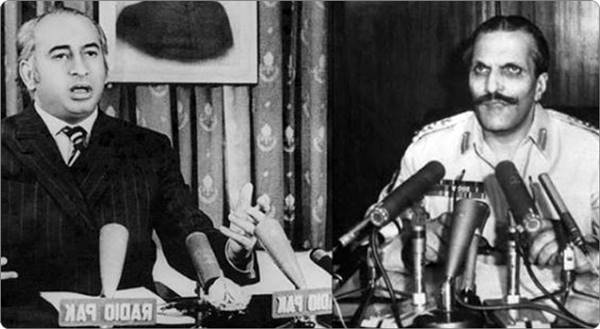
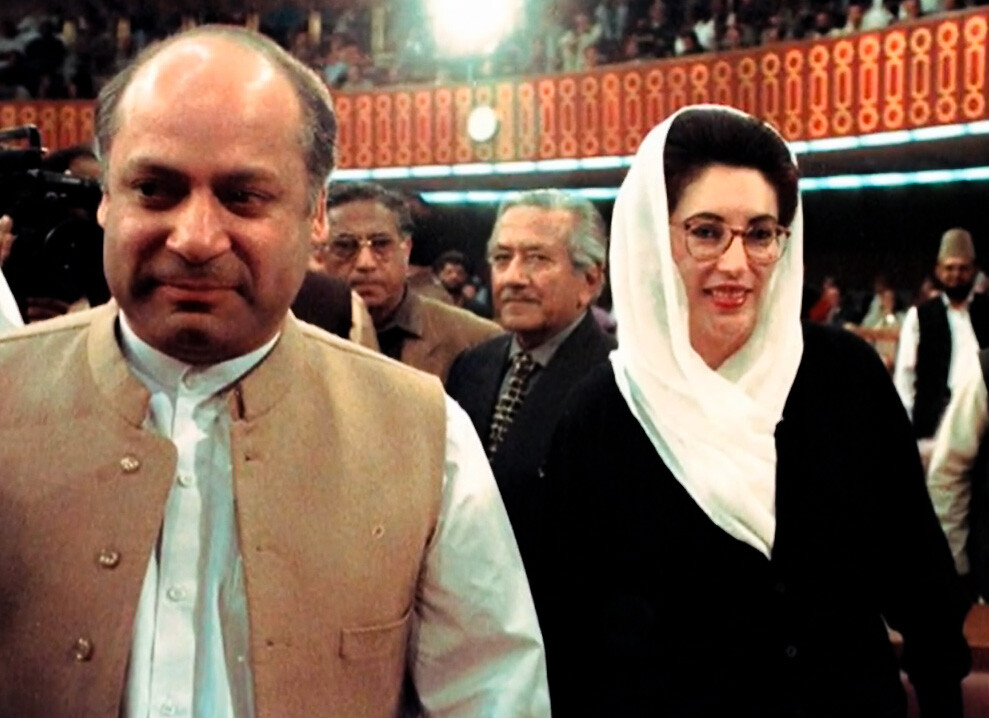
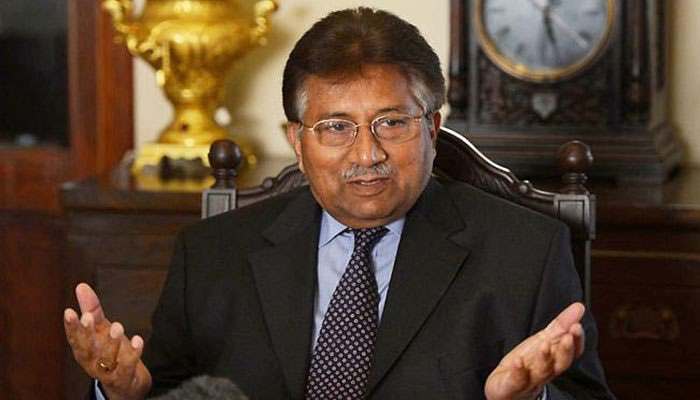
Even democrats, who came after Musharraf’s departure, rubbed shoulders with extremist outfits to bag a few extra votes. And worse, sometimes accused each other of violating the Blasphemy Laws.
And how are they doing this?
Mostly through their Twitter handles and official Facebook pages. The cutting edge of modern democracy.
Last year, just before the general election, the PML-N government in Pakistan tried to slightly change the text of an oath pledging the oath taker’s belief in an important article of faith in Islam. ‘I solemnly swear’ was replaced with ‘I believe.’
And do you know, who was one of the first persons to react?
No, not the religious parties, as such.
But Mr Imran Khan – a graduate of Oxford University; and a socialite-turned-politician.
He’s not cleric. He heads a populist centre-right party which believes in democracy.
At least that’s what he claims.
But just to score a few points against the government – on social media – he turned the whole thing to be about some diabolic conspiracy against the Pakistani constitution’s ‘Islamic’ character.
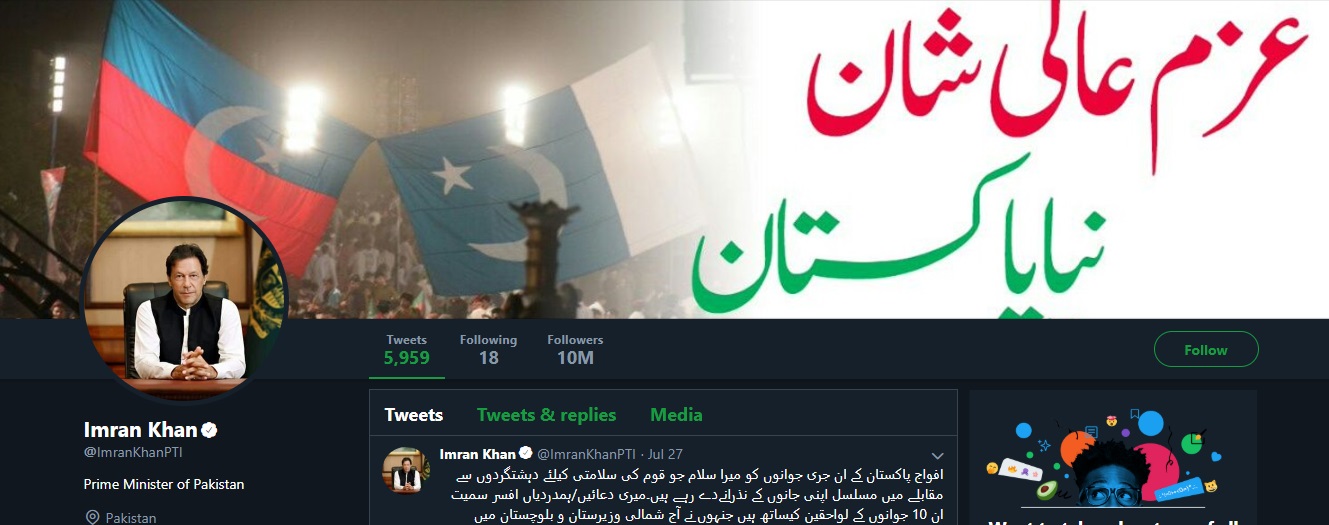
But he was not the only one.
Many other opposition party members started to do the same. And they were all using Twitter and Facebook. This, in turn, eventually attracted the attention of the dreaded religious outfits.
The government was rattled. Its response: “Oh, sorry, it was a mistake made by a clerk.” A typo.
Then to further its point, the government unleashed – on Twitter – the followers of the wonderful Mr Safdar Awan, the son-in-law of PML-N founder, Nawaz Sharif.
Mr Safdar – who, though, is facing numerous corruption charges – openly glorifies those who are willing to slay anyone even thinking of reforming certain ‘religious’ laws in the constitution.
And then it happened. A minister was shot at by a member of an extremist group who accused him of introducing that diabolical change in the oath. That ‘typo.’
It is said that the would-be-assassin had been incensed by the whole issue after reading Twitter and Facebook posts condemning the government in this regard. Thankfully, the minister survived the attempt.
But when the minister appeared on Twitter to tweet his relief, the poor sod was trolled by those who reminded him that it was his mother who back in 1986 had pushed for the laws for which he was shot at because some believed he was behind the typo!
It is true. His mom was behind that law.
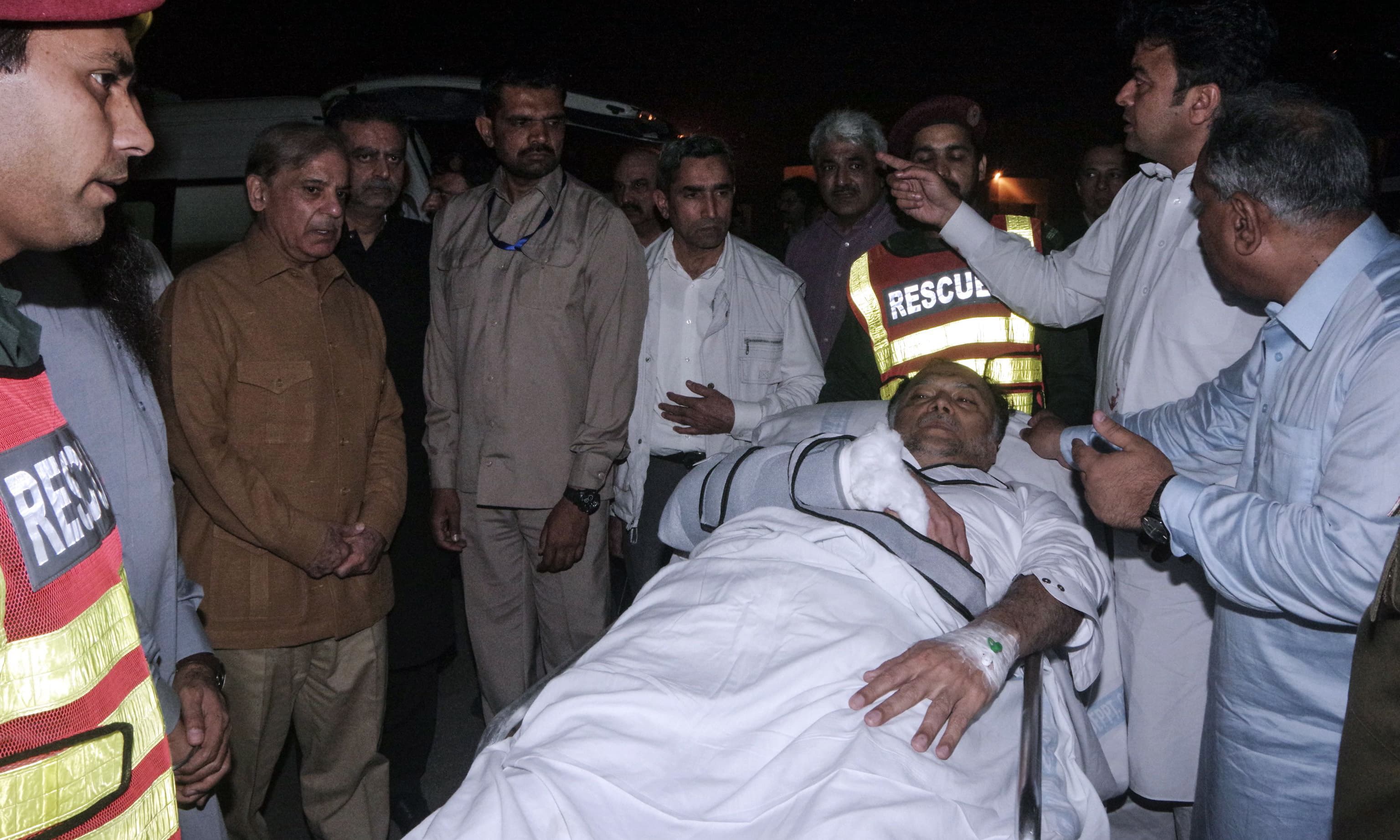
What goes around, comes around. A lesson Pakistani democrats and dictators refuse to learn. Turning democracy into a mockery. A mockery which is now all too vivid on the social media. Social media truly has turned democracy into a self-parody.
But, it’s not all that bad. The Prime Minister of Pakistan’s neighbor – the largest democracy in the world – tweets about the virtues and benefits of yoga. He isn’t spoiling anyone’s mood by tweeting about the public lynching of those who eat beef in India.
Then there is the president of another large democracy who – on social media – has resolved the North Korean, Iranian, Syrian and Palestinian issues.
He get a lot of retweets and ‘likes.’ He’s kind of funny too. Especially when he cracks jokes about racism and women. Not bad, eh?
Some 5 to 6 years before the whole fake news phenomenon on social media became such a hotly debated issue, a 15-year-old schoolgirl, Malala Yousafzai, was shot in the face and the head by extremists in Pakistan’s scenic Swat valley.
Just how did such a beautiful region, as Swat, produce such monstrous hate? But, unfortunately, it did, thanks mainly to all the folk that I briefly introduced earlier – the democrats and the dictators.
A badly injured Malala was flown to the UK. There, when she was fighting for her life in a hospital, many in Pakistan and many Pakistanis living in the US and Europe, were going ballistic on Twitter and Facebook.
No, they were NOT condemning the cowardly act of shooting a teenaged schoolgirl because she refused to give in to the demands of the extremists who wanted to stop girls from attending school. Instead, they were condemning her for bringing Pakistan a bad name.

Months later, things got even more bizarre. On social media, she became a western agent who, in concert with Pakistan’s enemies, had staged the assassination attempt, so that the Pakistan Army can use this as an excuse to attack and dismantle the wonderful regime that the cuddly extremists had set up in beautiful Swat.
This was just one theory doing the rounds on social media. So, more out of disgust than anything else, I penned a long piece in DAWN, satirizing all those brilliant, insightful men and women who were fully utilizing their right of free speech by spreading – on Twitter and Facebook – all these perceptive theories.
The piece was called, Malala: The Real Story (With Evidence).
It was written like an entirely straight-faced news report.
Now, let me share with you some of the things it contained:
Malala was born to Hungarian parents in Budapest and named Jane. The parents were recruited by the CIA and given a crash course in Christianity, hypnosis and karate. They landed in Pakistan and headed for Swat posing as NGO workers. They got in touch with a low-level ISI agent, who helped them find a Muslim family to adopt Jane.
The family that adopted her is converted to Christianity. They changed her name to Malala and instilled in her the fear of Jesus.
Malala started to write a blog that asked the militants of Swat to put down their weapons, pick up a Bible and boogie.
The militants requested Malala to stop writing her blogs and finish her homework instead. CIA recruited a Pashtu speaking Italian-American loner called Robert De Niro who was living in New York.
CIA shared its plan of Malala’s fake shooting with the ISI. The ISI agreed.
The Italian-American, Robert De Niro, arrived in Swat posing as an Uzbek homeopath.
It’s a long piece. It also informs that the Taliban have a special archeology wing and even a department of quantum physics. There are photographs in the piece of an undercover ISI agent appearing in a homemade Spiderman costume. Of Malala caught bungee jumping when we were being told that she had been shot.
An hour after the piece was put up on Dawn’s website, I received a call from the editor of the website, the late Musadiq Sanwal. He said, he had received a call from Dawn’s publishers, and they want the piece to be taken down.
Now, one hardly sees Dawn’s publishers. At Dawn the main editor and the editors working under him or her, are a truly empowered lot. They have a lot of say. So this was serious. Why did they want the piece to be taken down?
Musadiq told me that the publishers had received calls, asking them to reveal the names of the sources mentioned in the piece. What’s more, the piece had already been translated into Urdu and put up as breaking news on the websites of some Urdu newspapers.
Eventually, it was then picked up by one of the official media outlets of Iran, Press TV, and presented as fact! Why would Iran have a problem with Malala, one wonders.
Nevertheless, as this piece of satire was going ballistic on Twitter and Facebook, Musadiq cut a deal with the publishers. He told them that he will put a disclaimer at the bottom of the piece. And when that didn’t work, he put another disclaimer right at the top. So the piece was now sandwiched between two disclaimers. Didn’t work.
Thousands of people kept sharing it as FACT on the social media. And these included lawyers, doctors, engineers, and university and college students. So much so, that the very next day, this news of how a piece of satire had been taken as fact by so many people was published in the Washington Post.
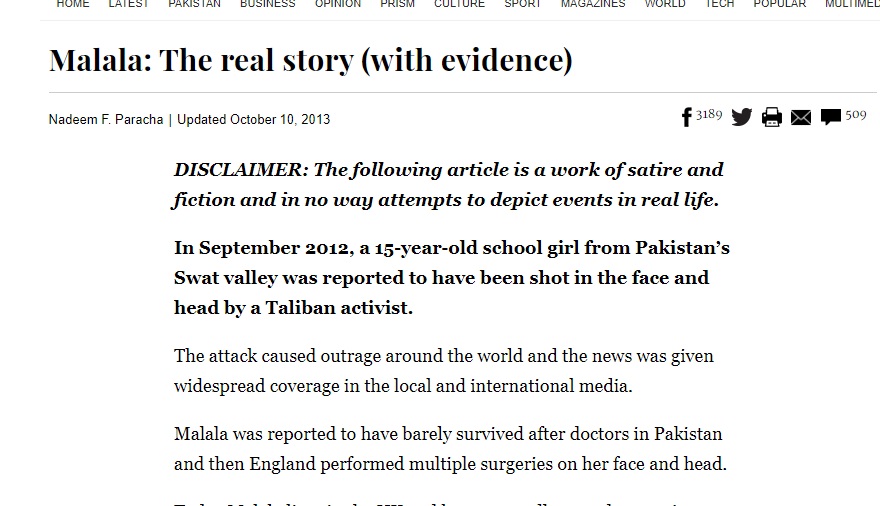
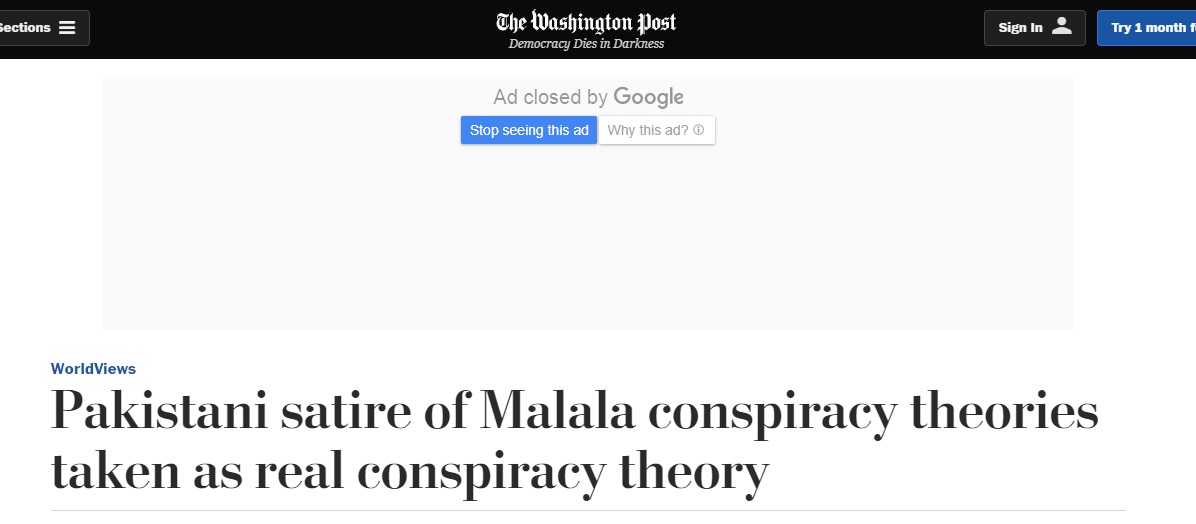
6 years later, when Malala returned to Pakistan, she was welcomed by a lot of people, including the government and the military-establishment. Yet, even 6 years after this piece was published, it returned. This time mostly on WhatsApp!
A host of a TV talk show conveniently translated it into Urdu and got it published in a newspaper. As fact! And then some bored folk in their aluminum hats, began to circulate it on WhatsApp and Twitter and Facebook. As fact!
I do not engage much with strangers on the social media. But a tweet from one desperate chap somehow landed on my Twitter timeline. He was sharing the translated version of the satire, 6 years later, at a time when Malala had returned.
His tweet read something like, ‘Truth about Malala finally sees the light!’
I couldn’t help but engage with him. I told him the piece was written 6 years ago and it is clearly satire. A send up. A parody. Of people like him.
His reply: It is my democratic right to believe what I want to believe. Stop being such a ‘liberal fascist!’
I told him I’ll do just that but only if he stopped being such a dupe.
And before I blocked him, he went on and on about how I had no respect for freedom of speech and how I was a fake liberal and a fake democrat.
To cut a long sorry story short, with the kind of debates, and news items we find on social media sites these days, and the kind of geniuses we now have as presidents and prime ministers, I would suggest that democracy too should now come with a disclaimer: This is satire. Not democracy.
The song was called the ‘Lunatics Have Taken over the Asylum.’
I have always understood the social media as a sanctuary for millions of people who once thought they were not being heard or seen. Owners of Twitter and Facebook insisted that their sites were an expression of a new kind of a dynamic, direct democracy.
They also claimed that the social media would nurture the many sacred aspects of democracy. Such as freedom of speech and expression; open and free debate; etc. But I am sure many of you would now agree that if social media was a friendly sanctuary for repressed democrats, it has now been taken over by the lunatics.
The internet largely is not all that bad. I mean, indeed, many of us have forgotten how to write with a pen; or read from a book; and porn is just too easily available. It’s become boring. And how many among the millennials remember what a typewriter was?
All this cannot be undone. And it shouldn’t. We must move forward. Nevertheless, doesn’t democracy give us the right to undo certain laws and amendments in the constitution that have become a problem? Then what is stopping us from undoing certain aspects of the internet that have become problematic?
It’s easier said than done. Take for instance the 2nd amendment in the US Constitution. The right to bear arms. And incidentally, the 2nd Amendment in Pakistan’s constitution that – in the name of faith – relegated a community of people to become an insignificant minority.
Or some controversial laws that were enacted through ordinances in the 1980s but have now clearly become weapons in the hands of those who wield them with utmost disregard for someone’s reputation or even life.
To many folks in the US one is not a true, patriotic American if he or she wants to undo or even reform the 2nd Amendment. Even if the right to bear arms has often turned into the desire to mow down students at a high school.

In Pakistan, many would consider one to be a bad Muslim if he or she demands that certain controversial laws enacted in the name of religion should be reformed. Even if a jealous husband or a crooked land-grabber or a cynical, illiterate preacher conveniently decides to get rid of the competition by accusing him or her of committing religious sacrilege.
Unlike dictatorship and authoritarianism, democracy is a more complex animal.
This complexity often throws up various contradictions. And I believe this aspect of democracy is best demonstrated on the social media.
On Twitter, last year, a social media personality in Pakistan tweeted how much he hates democracy; and how democracy is such a failure.
He tweeted that it was a western conspiracy which should be overthrown by a benevolent dictatorship. When he was confronted, he instantly reminded those confronting him that it was his democratic right to say what he just said. He urged them to respect his freedom of speech. Such are the ironies facing democracy these days – especially on social media.
A few years ago, a well-known Pakistani personality – a millennial – posted rants about how the west was encouraging the growth of homosexuality in Pakistan.
This gentleman has similar views about democracy as well. So, a few Pakistanis were of the view that his rants in this context may instigate violence against some people. They told him that since Pakistan was a democracy, all types of men and women, as long as they were not violent, have the right to be whatever they want to be.
His reply to them: It is my democratic right to air my views about this issue any way I want to.
But Facebook thought otherwise. Due to the many complaints against his rant, Facebook suspended his account for promoting hate speech.
This gentleman created a new account. And then wrote an open letter to Mr Mark Zuckerberg, accusing him of not respecting his democratic rights and the right of free speech. And Voila! Mr Zuckerberg personally reinstated his account.

Now, how is one to describe such a scenario? Was it his democratic right to instigate violence against a community of people that he detested?
Were those – who got his account suspended – being irresponsible democrats?
Was Mr Zuckerberg defending freedom of speech when he reinstated the aggravated gentleman’s account?
In the age of social media, when we talk about democracy, we tend to understand it as something which encourages a free-for-all attitude.
That’s why I believe we have begun to confuse anarchy with democracy.
Freedom of speech is not about having the right to deliver hate speech!
Back in 2005 when a Danish newspaper published a series of cartoons lampooning a sacred personality of Islam, I wrote an article condemning the cartoons.
I faced a lot backlash for that article from readers in Europe after someone posted the article on the now forgotten and defunct social media site called Orkut.
The critics lamented, how can I – a liberal democrat – condemn the cartoons? They reminded me that what I was condemning was freedom of expression.
I refused to be drawn into the debate that the article generated on that Orkut page run by someone who continued calling me a ‘closet fundamentalist.’
Instead, I responded through another article.
I asked: If that which creates violent commotion in a large community of people is democracy or freedom of expression, then please explain and define the act of the rabid Taliban regime which blew up those magnificent Buddha statues in Afghanistan in 2001?
How was that not freedom of expression?
This article, however, was not posted by anyone in that Orkut group.

Democracy is a responsibility. It comes with checks and balances.
That’s why we have constitutions. But as I mentioned earlier, some content in certain constitutions too have begun to enshrine and even encourage prejudice and violence? These need to be re-looked, just like the many accounts on social media peddling hate and violence. They need to be undone.
There is nothing undemocratic about doing such a thing.
Democracy should stop behaving like an apologist.
Because, for example, when we scan the social media landscape, those who detest democracy are the ones exploiting its many aspects the most: Freedom of speech, freedom of expression, etc.
Is it okay then that some of this free speech and expression ends up instigating violence against a community or an individual?
No.
Before I go on, I think it is important to give a brief background of the country I call home. Imagine, there was Google Images back in the 1960s and 1970s.
Had you typed Pakistan in the search bar, you would most likely see diverse images, both pleasant and unpleasant.
But if you type Pakistan in the search bar today, over 70 percent of the images are likely to be about terror attacks, rabid clerics, angry mobs, burqa-clad women, et al.

Is this some conspiracy by Google? Not quite.
The Pakistani middle-class, the class I come from, is a rapidly expanding segment of our population. In essence, it is not very different from the middle-classes in Europe or the United States.
This is not a conspiracy by Google. This is the bitter fruit of Pakistani politics as it has evolved and stands today.
Let me explain: ZA Bhutto. A populist demagogue. Coming in through an election, but sabotaging the constitution, filling it with the most undemocratic amendments just to please a handful of nuts in the opposition and the society. And his own ego.
Zia-ul-Haq. A reactionary military dictator getting himself elected as president through a sham referendum and introducing even more controversial laws so that Pakistan’s political system becomes ‘more Islamic.’
Benazir and Nawaz, the two democrats of the 1990s, deciding not to rock the boat by reforming the controversial amendments. Let them be, they thought. Why bother.
General Musharraf, posing as a modernist out to rid the country of extremist groups; but only getting rid of a few and nurturing others for some godforsaken, convoluted ‘strategic depth.’



Even democrats, who came after Musharraf’s departure, rubbed shoulders with extremist outfits to bag a few extra votes. And worse, sometimes accused each other of violating the Blasphemy Laws.
And how are they doing this?
Mostly through their Twitter handles and official Facebook pages. The cutting edge of modern democracy.
Last year, just before the general election, the PML-N government in Pakistan tried to slightly change the text of an oath pledging the oath taker’s belief in an important article of faith in Islam. ‘I solemnly swear’ was replaced with ‘I believe.’
And do you know, who was one of the first persons to react?
No, not the religious parties, as such.
But Mr Imran Khan – a graduate of Oxford University; and a socialite-turned-politician.
He’s not cleric. He heads a populist centre-right party which believes in democracy.
At least that’s what he claims.
But just to score a few points against the government – on social media – he turned the whole thing to be about some diabolic conspiracy against the Pakistani constitution’s ‘Islamic’ character.

But he was not the only one.
Many other opposition party members started to do the same. And they were all using Twitter and Facebook. This, in turn, eventually attracted the attention of the dreaded religious outfits.
The government was rattled. Its response: “Oh, sorry, it was a mistake made by a clerk.” A typo.
Then to further its point, the government unleashed – on Twitter – the followers of the wonderful Mr Safdar Awan, the son-in-law of PML-N founder, Nawaz Sharif.
Mr Safdar – who, though, is facing numerous corruption charges – openly glorifies those who are willing to slay anyone even thinking of reforming certain ‘religious’ laws in the constitution.
And then it happened. A minister was shot at by a member of an extremist group who accused him of introducing that diabolical change in the oath. That ‘typo.’
It is said that the would-be-assassin had been incensed by the whole issue after reading Twitter and Facebook posts condemning the government in this regard. Thankfully, the minister survived the attempt.
But when the minister appeared on Twitter to tweet his relief, the poor sod was trolled by those who reminded him that it was his mother who back in 1986 had pushed for the laws for which he was shot at because some believed he was behind the typo!
It is true. His mom was behind that law.

What goes around, comes around. A lesson Pakistani democrats and dictators refuse to learn. Turning democracy into a mockery. A mockery which is now all too vivid on the social media. Social media truly has turned democracy into a self-parody.
But, it’s not all that bad. The Prime Minister of Pakistan’s neighbor – the largest democracy in the world – tweets about the virtues and benefits of yoga. He isn’t spoiling anyone’s mood by tweeting about the public lynching of those who eat beef in India.
Then there is the president of another large democracy who – on social media – has resolved the North Korean, Iranian, Syrian and Palestinian issues.
He get a lot of retweets and ‘likes.’ He’s kind of funny too. Especially when he cracks jokes about racism and women. Not bad, eh?
Some 5 to 6 years before the whole fake news phenomenon on social media became such a hotly debated issue, a 15-year-old schoolgirl, Malala Yousafzai, was shot in the face and the head by extremists in Pakistan’s scenic Swat valley.
Just how did such a beautiful region, as Swat, produce such monstrous hate? But, unfortunately, it did, thanks mainly to all the folk that I briefly introduced earlier – the democrats and the dictators.
A badly injured Malala was flown to the UK. There, when she was fighting for her life in a hospital, many in Pakistan and many Pakistanis living in the US and Europe, were going ballistic on Twitter and Facebook.
No, they were NOT condemning the cowardly act of shooting a teenaged schoolgirl because she refused to give in to the demands of the extremists who wanted to stop girls from attending school. Instead, they were condemning her for bringing Pakistan a bad name.

Months later, things got even more bizarre. On social media, she became a western agent who, in concert with Pakistan’s enemies, had staged the assassination attempt, so that the Pakistan Army can use this as an excuse to attack and dismantle the wonderful regime that the cuddly extremists had set up in beautiful Swat.
This was just one theory doing the rounds on social media. So, more out of disgust than anything else, I penned a long piece in DAWN, satirizing all those brilliant, insightful men and women who were fully utilizing their right of free speech by spreading – on Twitter and Facebook – all these perceptive theories.
The piece was called, Malala: The Real Story (With Evidence).
It was written like an entirely straight-faced news report.
Now, let me share with you some of the things it contained:
Malala was born to Hungarian parents in Budapest and named Jane. The parents were recruited by the CIA and given a crash course in Christianity, hypnosis and karate. They landed in Pakistan and headed for Swat posing as NGO workers. They got in touch with a low-level ISI agent, who helped them find a Muslim family to adopt Jane.
The family that adopted her is converted to Christianity. They changed her name to Malala and instilled in her the fear of Jesus.
Malala started to write a blog that asked the militants of Swat to put down their weapons, pick up a Bible and boogie.
The militants requested Malala to stop writing her blogs and finish her homework instead. CIA recruited a Pashtu speaking Italian-American loner called Robert De Niro who was living in New York.
CIA shared its plan of Malala’s fake shooting with the ISI. The ISI agreed.
The Italian-American, Robert De Niro, arrived in Swat posing as an Uzbek homeopath.
It’s a long piece. It also informs that the Taliban have a special archeology wing and even a department of quantum physics. There are photographs in the piece of an undercover ISI agent appearing in a homemade Spiderman costume. Of Malala caught bungee jumping when we were being told that she had been shot.
An hour after the piece was put up on Dawn’s website, I received a call from the editor of the website, the late Musadiq Sanwal. He said, he had received a call from Dawn’s publishers, and they want the piece to be taken down.
Now, one hardly sees Dawn’s publishers. At Dawn the main editor and the editors working under him or her, are a truly empowered lot. They have a lot of say. So this was serious. Why did they want the piece to be taken down?
Musadiq told me that the publishers had received calls, asking them to reveal the names of the sources mentioned in the piece. What’s more, the piece had already been translated into Urdu and put up as breaking news on the websites of some Urdu newspapers.
Eventually, it was then picked up by one of the official media outlets of Iran, Press TV, and presented as fact! Why would Iran have a problem with Malala, one wonders.
Nevertheless, as this piece of satire was going ballistic on Twitter and Facebook, Musadiq cut a deal with the publishers. He told them that he will put a disclaimer at the bottom of the piece. And when that didn’t work, he put another disclaimer right at the top. So the piece was now sandwiched between two disclaimers. Didn’t work.
Thousands of people kept sharing it as FACT on the social media. And these included lawyers, doctors, engineers, and university and college students. So much so, that the very next day, this news of how a piece of satire had been taken as fact by so many people was published in the Washington Post.


6 years later, when Malala returned to Pakistan, she was welcomed by a lot of people, including the government and the military-establishment. Yet, even 6 years after this piece was published, it returned. This time mostly on WhatsApp!
A host of a TV talk show conveniently translated it into Urdu and got it published in a newspaper. As fact! And then some bored folk in their aluminum hats, began to circulate it on WhatsApp and Twitter and Facebook. As fact!
I do not engage much with strangers on the social media. But a tweet from one desperate chap somehow landed on my Twitter timeline. He was sharing the translated version of the satire, 6 years later, at a time when Malala had returned.
His tweet read something like, ‘Truth about Malala finally sees the light!’
I couldn’t help but engage with him. I told him the piece was written 6 years ago and it is clearly satire. A send up. A parody. Of people like him.
His reply: It is my democratic right to believe what I want to believe. Stop being such a ‘liberal fascist!’
I told him I’ll do just that but only if he stopped being such a dupe.
And before I blocked him, he went on and on about how I had no respect for freedom of speech and how I was a fake liberal and a fake democrat.
To cut a long sorry story short, with the kind of debates, and news items we find on social media sites these days, and the kind of geniuses we now have as presidents and prime ministers, I would suggest that democracy too should now come with a disclaimer: This is satire. Not democracy.
